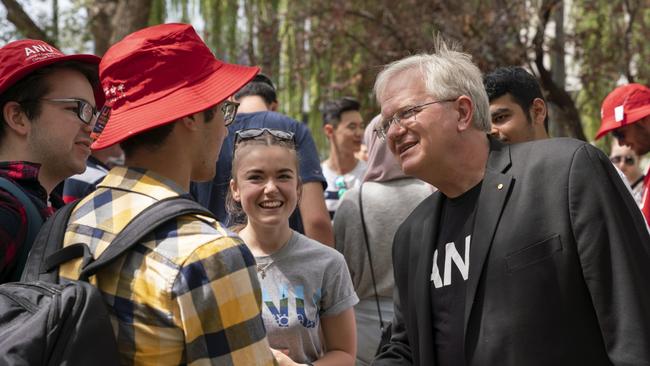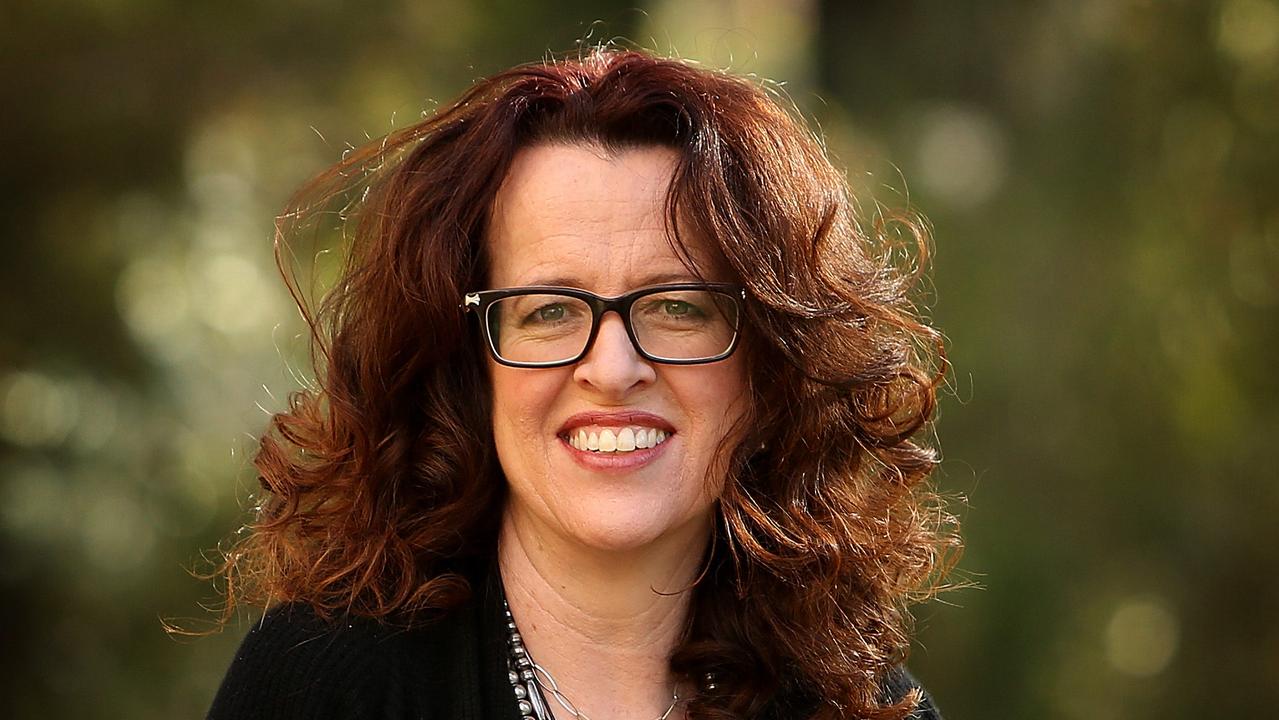ANU chief Brian Schmidt returns to his research in astrophysics
As he returns to his research in astrophysics, ANU vice-chancellor Brian Schmidt says he completed most of his agenda as a university leader.

Brian Schmidt says he wrote himself a letter when he become vice-chancellor of the Australian National University eight years ago, to remind himself, as he progressed through the role, of what he had set out to do.
Now, he says, he has got most of it done, in spite of the massive financial hit the ANU took from Covid, and that’s one of the reasons why he is stepping down to return to his field of astrophysics research which won him a Nobel prize in 2011.
Schmidt’s ambition was for ANU to be small and excellent, like an elite North American university, he says, “where we could bring in students from across the country, representing the whole of the country, to study on our campus in an environment that wasn’t huge and mass-produced”.
It was deliberately different to the large student model pursued by Australia’s other top research universities – Sydney, Melbourne, UNSW, Monash and Queensland – where masses of students, particularly high-paying international ones, pay much of the bill for top-level research.
In 2019, Schmidt’s plan was looking good. ANU turned in a $300m surplus that year and the university’s strong financial position made the idea of deliberately limiting the growth in students – and concentrating on creating an Australian Harvard, Oxford or Cambridge – look doable.
But then Covid arrived just as ANU was putting the brakes on its student numbers. “Not only did we decrease our numbers, Covid really decreased them,” Schmidt says. As a result, ANU faced a worse funding crisis than other Group of Eight universities, compounded by other cuts in government funding.
“I still think it was the right thing to do,” says Schmidt.
He wants a university which is small enough to be a community, “the smallest size it can be to pay the bills”. But he says he wouldn’t have downsized at that time if he’d known what was coming.
“We’ve got a plan to bring things back into black, and we’re going to be a bit bigger than I had wanted in the future. So probably 1000 or 1500 students more than we were going to be,” he says.
Among the career achievements he is most proud of are helping introduce for higher education gender equity accreditation to Australia through the Athena Swan scheme (something he did before becoming vice-chancellor) and personally donating “a reasonable sum” to help it happen. During his vice-chancellorship, ANU achieved a 50/50 gender split in its senior executive ranks and increased the ranks of Indigenous academics tenfold.
Schmidt is famous for rejecting the high salaries paid to Australian university leaders, which are significantly more generous than in comparable countries. When Schmidt took the top ANU job in 2016 he insisted on being paid about $300,000 less than his predecessor Ian Young.
That practice continues and last year Schmidt received total remuneration of $814,000, which is about the level deputy vice-chancellors of most other Group of Eight universities are paid.
Next year he returns to being an ANU physics professor. He plans to observe colliding neutron stars to better understand how the heaviest elements were created, and to measure even more precisely the rate of expansion of the universe, work which originally won him his Nobel prize.
Intriguingly, Schmidt will also prepare a big new interdisciplinary subject for undergraduates.
“It’s a class that I describe as understanding everything you should know when you graduate from ANU, but probably don’t right now,” he says. “We want you to understand everything from the legal system to economics to technology to AI to the First Nations perspective.”
It will be a class of big ideas, and projects in which students try to solve the tough problems which humans currently face.
“I hope a lot of people want to take it,” Schmidt says.




To join the conversation, please log in. Don't have an account? Register
Join the conversation, you are commenting as Logout